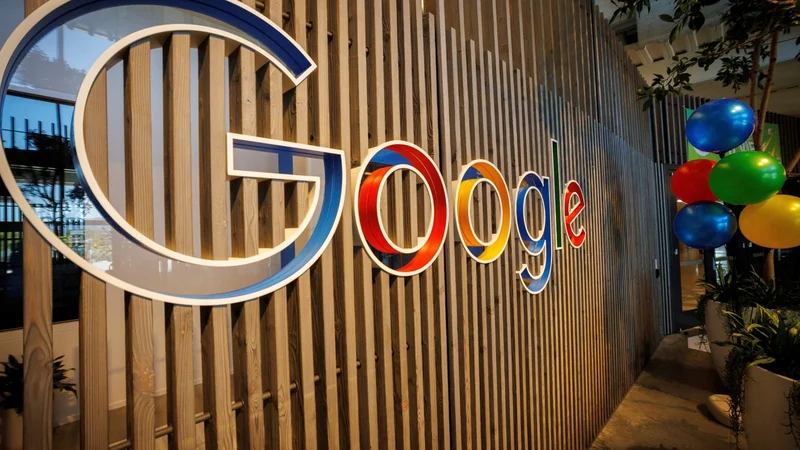Article Directory
Let's get one thing straight. Wall Street isn't complicated. It’s a giant, panicky beast that only understands two things: making money now, and a believable story about making more money later. This past week, we saw that beast get fed Google stock rises, Meta stock plunges: A tale of 2 AI stories, and its reaction tells you everything you need to know about the con game being played in Silicon Valley.
Alphabet (you know, Google) steps up to the mic, stock up 5%, flirting with a $3 trillion valuation. They talk about AI, and investors practically throw roses. Then Meta shuffles on stage, stock plunging over 11%, and the crowd pelts them with rotten vegetables.
Both companies are dumping obscene, nation-state-level budgets into AI. So why is one's spending seen as a savvy investment and the other's as a drunken bonfire of cash? It ain't about the tech. It never is. It's about the sales pitch.
Google's Masterclass in Boring Brilliance
Google’s AI story is the most brilliantly boring pitch I’ve ever seen. They’re not selling a revolution; they’re selling an upgrade. Their strategy is like a master chef adding a ridiculously expensive, lab-grown truffle to a burger that already makes billions. It makes the burger better, justifies a higher price, and doesn't scare the customers.
Look at the evidence. They roll out AI-packed Pixel 10 phones. Cool, a phone with smarter features. They integrate AI "overviews" into Search. Great, the search engine that runs the world gets a little bit slicker. They announce a $15 billion data center in India and another $9 billion expansion in the U.S. to power their cloud services, which just scored a flashy deal with the Olympics. It’s all so… tangible. So digestible.
An analyst, Brad Erickson, called Google’s vision "crisper" and a "natural extension of search." That’s corporate-speak for "it makes sense and we can see how it prints money." Google is spending tens of billions, but they can point to a product, a customer, a revenue stream. They’re not asking you to believe in magic; they’re just showing you the upgraded plumbing. Is it world-changing? Probably not. But does it look like a safe bet for a bunch of guys in suits managing pension funds? You bet your ass it does.
The question nobody seems to be asking, however, is whether this "natural extension" is just a defensive move. Is Google's "AI leadership" just a fancier way of saying they're desperately trying to bolt armor onto their aging battleship before a fleet of nimbler AI destroyers makes it obsolete?

Meta's Sci-Fi Fever Dream
And then there's Meta. Oh, boy. Meta.
If Google is selling an upgraded burger, Meta is trying to sell a teleportation machine that they haven't built yet, powered by a fuel source they haven't discovered, based on blueprints scribbled on a napkin. They stand on stage, straight-faced, and say, "We're raising spending, our guidance is a little soft, but trust us, we're building 'super intelligence'!"
Give me a break.
The market’s reaction wasn’t just about a "soft" Q4 guidance. It was a vote of no confidence in the storyteller. Investors looked at the massive spending increase and asked a simple question: for what? Meta AI? What is that? A chatbot on Instagram that nobody asked for? Vibes? What the hell even is that? They’re promising a "paradigm shift," which is the term clueless executives use when they want to sound smart about setting money on fire. It reminds me of my landlord calling a burst pipe a "spontaneous hydro-dynamic event." It’s nonsense designed to obscure the fact that you're screwed.
The core problem is that Meta’s AI play isn’t an extension of anything. An analyst rightly pointed out that it's a "totally new realm of utility" for platforms people use to look at vacation photos and argue with their uncle. They haven't earned the right to play in that sandbox. This is a bad idea. No, 'bad' doesn't cover it—this is a five-alarm dumpster fire of a strategy. They’re asking Wall Street to fund a multi-billion dollar science project with no hypothesis, no product, and a track record that includes the Metaverse.
Would you give that guy your money? Offcourse not. Then again, maybe I'm the crazy one here. Maybe there are millions of people just dying to have a deep conversation with their smart glasses. But I doubt it. This whole thing feels less like a business plan and more like a desperate attempt to find a new purpose, any purpose, before the world realizes that Facebook is just… well, you know.
It's Just a Confidence Game
At the end of the day, this isn't a story about technology. It's about trust and storytelling. Investors trust that Google, the buttoned-up king of digital advertising, will use AI to methodically fortify its castle and make its money-printing machine even more efficient. It’s a boring story, but it’s a believable one.
Meta, on the other hand, lost the benefit of the doubt somewhere in the uncanny valley of the Metaverse. Now, every promise of a revolutionary future sounds like another expensive fantasy. Zuckerberg is asking for faith, but his church has no believers. It's a classic confidence game, and right now, one CEO is playing it like a master, while the other looks like he just learned the rules. And the market, for all its flaws, can usually spot the difference.
